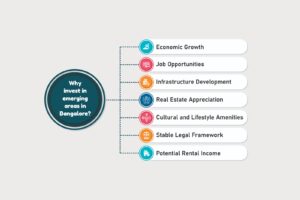Buying a Property:
- Equity Building: When you buy a property, you’re investing in an asset that can potentially appreciate over time, building equity. This can be a valuable long-term investment.
- Stability and Control: Owning a property provides stability and control over your living situation. You have the freedom to make changes to the property, decorate it according to your preferences, and stay for as long as you want without the risk of sudden rent increases or eviction.
- Tax Benefits: Homeownership often comes with tax benefits such as deducting mortgage interest and property taxes, which can reduce your overall tax burden.
- Potential for Rental Income: If you have extra space, such as a basement apartment or spare rooms, you can rent them out to generate additional income.
- Long-Term Cost Savings: While the initial costs of buying a property may be higher (down payment, closing costs, etc.), over the long term, your monthly mortgage payments may be comparable to or even lower than rental payments. Plus, you’re building equity instead of paying rent.
Renting a Property:
- Flexibility: Renting offers more flexibility than buying. You’re not tied down to a specific location for an extended period. This can be advantageous if you’re uncertain about your future plans, job location, or if you prefer to maintain mobility.
- Lower Upfront Costs: Renting typically requires less upfront investment than buying a property. You don’t need to worry about a down payment, closing costs, property taxes, or maintenance expenses.
- No Responsibility for Maintenance: As a renter, you’re usually not responsible for major repairs or maintenance costs. If something breaks, your landlord is generally responsible for fixing it.
- Predictable Expenses: Renting provides predictability in expenses. Your rent is usually fixed for the duration of your lease, making it easier to budget for housing costs.
- Investment Diversification: By not tying up a large portion of your wealth in real estate, you have more liquidity to invest in other assets that may offer higher returns or better diversification.
Ultimately, the decision between buying and renting depends on your financial situation, lifestyle preferences, long-term goals, and the local real estate market conditions. It’s essential to carefully evaluate these factors before making a decision. Additionally, consulting with a financial advisor or real estate professional can provide valuable insights tailored to your specific circumstances.




